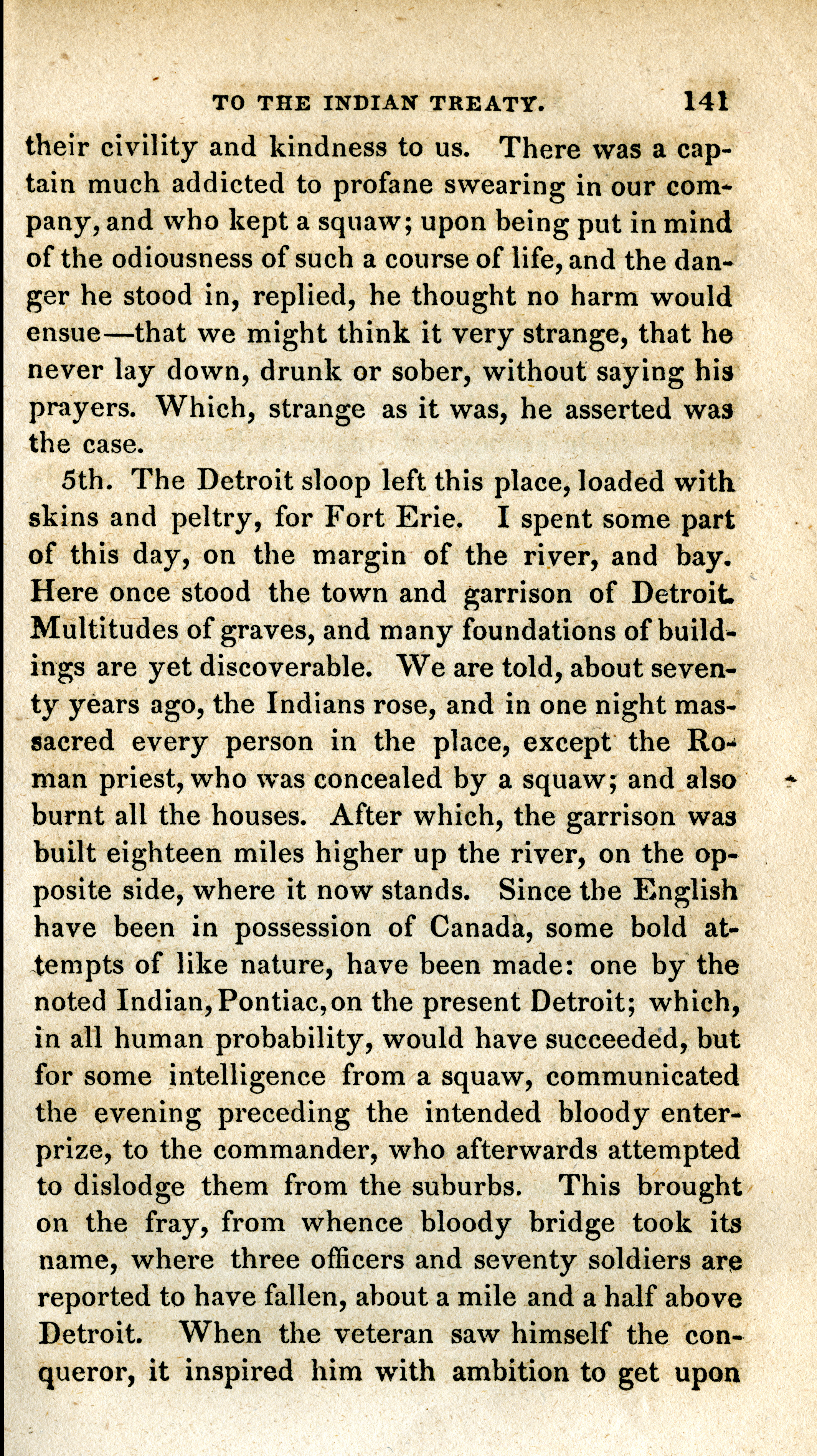their
civility and kindness to us. There was a cap-
tain much addicted to profane
swearing in our com-
pany, and who kept a squaw; upon being put in
mind
of the odiousness of such a course of life, and the dan-
ger he
stood in, replied, he thought no harm would
ensue — that we might think it
very strange, that he
never lay down, drunk or sober, without saying
his
prayers. Which, strange as it was, he asserted was
the case.
The Detroit sloop left this place, loaded
with
skins and peltry, for Fort Erie. I
spent some part
of this day, on the margin of the river, and bay.
Here
once stood the town and garrison of Detroit.
Multitudes of graves, and many foundations of
build-
ings are yet discoverable. We are told, about seven-
ty years
ago, the Indians rose, and in one night mas-
sacred every person in the
place, except the Ro-
man priest, who was concealed by a squaw; and
also
burnt all the houses. After which, the garrison was
built eighteen
miles higher up the river, on the op-
posite side, where it now stands.
Since the English
have been in possession of Canada, some bold
at-
tempts of like nature, have been made: one by the
noted Indian,
Pontiac, on the present Detroit;
which,
in all human probability, would have succeeded, but
for some
intelligence from a squaw, communicated
the evening preceding the intended
bloody enter-
prize, to the commander, who afterwards attempted
to
dislodge them from the suburbs. This brought
on the fray, from whence
bloody bridge took its
name, where
three officers and seventy soldiers are
reported to have fallen, about a
mile and a half above
Detroit. When the
veteran saw himself the con-
queror, it inspired him with ambition to get
upon

